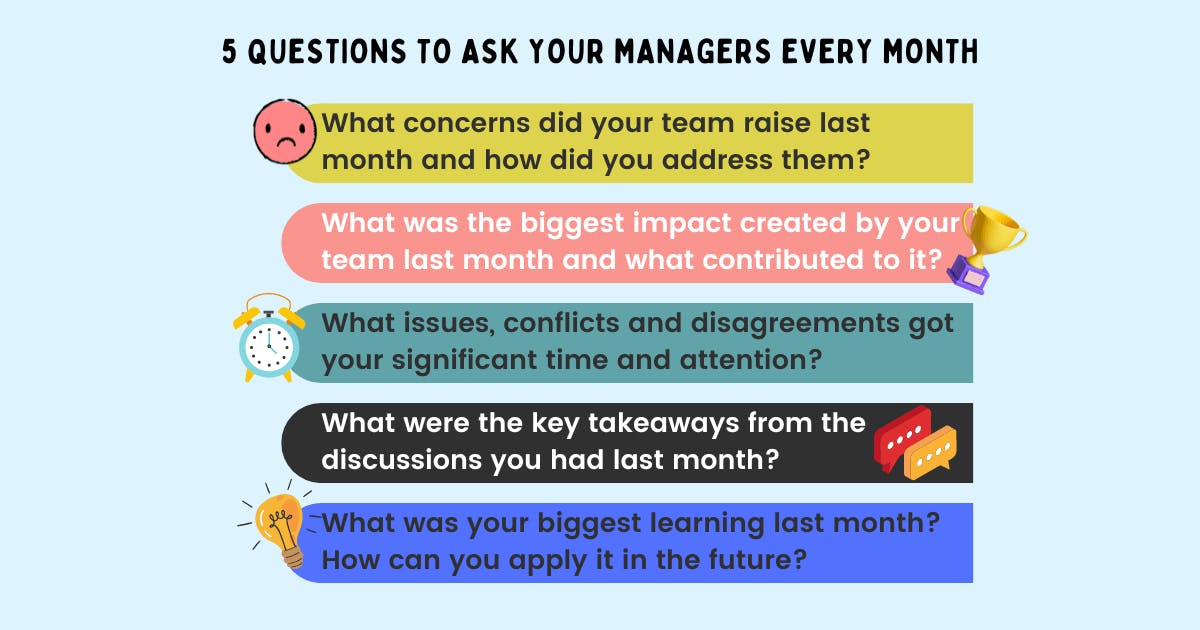640 reads
5 Monthly Questions to Help Your Managers Grow as Leaders
by
October 29th, 2023
Audio Presented by

Author Upgrade Your Mindset, Rethink Imposter Syndrome. Scaling products → Scaling thinking. Former AVP Engg @Swiggy
About Author
Author Upgrade Your Mindset, Rethink Imposter Syndrome. Scaling products → Scaling thinking. Former AVP Engg @Swiggy
